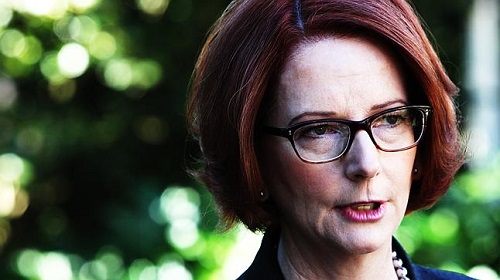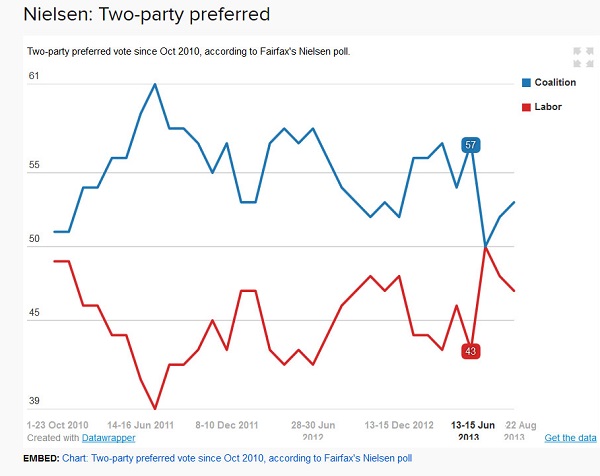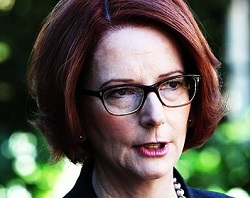
There is no trail that leads to Gillard
Mark Latham comments on the obsessional pursuit by right-wing blogger and journalist at The Australian newspaper, Michael Smith of Gillard and the socalled AWU affair 20 years ago.
In practising the politics of personal destruction, The Australian hasn’t been after the truth. It’s been after Gillard.
In a second column he fingers this development for what it is:
A terrible precedent has been set. Anyone rising to the top of Australian politics can be the victim of smear campaigns related to their employment before they entered Parliament. It’s an American trend, the politics of personal destruction, whereby rumours are spread and reputations are sullied for the purpose of tearing down one’s opponents.
Thousands of pages of documents have been examined in the AWU/Slater & Gordon affair – by Hedley Thomas and Michael Smith at The Australian, by the Victorian police and now the Abbott government’s royal commission – and none has revealed impropriety by Gillard. (Emphasis added)
How are these smear campaigns perpetuated in the media? Usually, by telling half the truth – by raising questions about someone’s character, while ignoring evidence and facts that exonerate them. Hedley Thomas has this technique down pat.
He then gives an instance of Thomas’s ‘journalism’ about how AWU funds were allegedly used to pay for renovations at Gillard’s home by a Melbourne builder, Kon Spyridis, way back in 1995.
In August 2012, Spyridis declared this to be untrue, telling the Herald Sun: “The union has got nothing to do with Julia’s payment for the house; Julia paid me”.
Latham then outlines how Thomas, in a story in April this year, through half-truth and innuendo implied that Gillard was guilty.
Journalism of this kind is not only incompetent, it’s wilfully malicious. It’s a betrayal of professional standards, whereby the public should be given the whole story, not just selective quotes for political purposes.
But then it got worse. In previewing the royal commission’s hearings on the Bolt Report on June 8, Thomas declared that Spyridis’s “evidence will be really interesting because he has said little on the public record”.
This was brazenly untrue. Spyridis had said a great deal, all of it clearing Gillard. Thomas seemed psychologically incapable of allowing these words to pass his lips.
Latham points out that in the two-party system where one side only needs only a few votes more than the other to win government, “there’s a built-in incentive for tearing down the rival party through smear and scare campaigns.”
During the last term of Parliament, the Liberals manufactured outrage around two big lies: that the carbon tax was destroying the economy and that Gillard was a crook.
Here’s the long term two-party preferred voting intention according to Nielsen:

Late in 2012 the ALP was competitive again at 48-52 TPP. Newspoll at that time had the parties 50-50. Cynically in October 2012 Julie Bishop launched a remorseless attack in question time for two weeks implying that Gillard had been involved in criminal activity in 1995. At one point Abbott announced the matter settled, which was blatantly false.
It seems clear that this scurrilous behaviour had its reward, although in 2013 Gillard herself managed a few own goals, detailed along with the good stuff in Mungo MacCallum’s book The Mad Marathon: the Story of the 2013 Election.
Abbott told lies every day for three years about the carbon ‘tax’.
If a net 2 or 3 out of 100 change their vote as a result of these lies it can win an election.
Now we have these defamers and prevaricators running the affairs of the nation.


 My attention was drawn to a series of articles under the heading The Meltdown by Peter Hartcher by Mark and then
My attention was drawn to a series of articles under the heading The Meltdown by Peter Hartcher by Mark and then